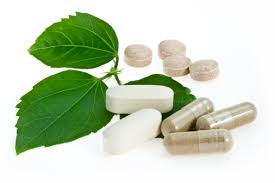Risperidone is a medication that is used to treat a variety of mental health conditions, including schizophrenia and bipolar disorder. While it can be very effective in managing symptoms, there are some potential long-term side effects that you should be aware of. This blog post will discuss the most common risperidone long-term side effects, as well as what you can do to minimize your risk.
Contents
What Is Risperidone?
 Risperidone is a medication that works by changing the effects of chemicals in the brain. It is an atypical antipsychotic medication and is used to treat schizophrenia and bipolar disorder. Risperidone can help to reduce hallucinations, delusions, and thought disorders. It can also help to improve mood swings, irritability, aggression, and impulsivity. Risperidone may be used as part of combination therapy. This means you may need to take it with other medications.
Risperidone is a medication that works by changing the effects of chemicals in the brain. It is an atypical antipsychotic medication and is used to treat schizophrenia and bipolar disorder. Risperidone can help to reduce hallucinations, delusions, and thought disorders. It can also help to improve mood swings, irritability, aggression, and impulsivity. Risperidone may be used as part of combination therapy. This means you may need to take it with other medications.
This medication also makes it easier for you to think more clearly and take part in your everyday life.
Risperidone is available as an oral tablet, an oral solution, or an intramuscular injection.
Possible Risperidone Long Term Side Effects

While risperidone is generally effective and well-tolerated, there are some potential long-term side effects associated with the medication. These include:
Weight Gain
Weight gain is one of the most common side effects associated with risperidone. In fact, up to 25% of people who take the medication may experience weight gain. If you are taking risperidone, it is important to monitor your weight and report any changes to your healthcare provider. There are also some lifestyle changes you can make to help prevent weight gain, such as eating a healthy diet and getting regular exercise.
Dyslipidemia
Dyslipidemia is another potential long-term side effect of risperidone. This condition is characterized by an abnormal amount of fats in the blood. Dyslipidemia can increase your risk for heart disease and stroke. If you are taking risperidone, it is important to have your cholesterol and triglyceride levels checked regularly. You should also report any changes in your lipid levels to your healthcare provider.
Hyperglycemia
Hyperglycemia is another long-term side effect associated with risperidone use. This condition occurs when there is too much sugar in the blood. Hyperglycemia can increase your risk for diabetes and other serious health problems. If you are taking risperidone, it is important to have your blood sugar levels checked regularly. You should also report any changes in your blood sugar levels to your healthcare provider.
Increased Appetite
Another common side effect of risperidone is increased appetite. This can lead to weight gain if not managed properly. If you are taking risperidone and notice an increase in your appetite, be sure to eat healthy foods and exercise regularly to avoid weight gain. Sometimes there may be many reasons for having an increased appetite other than the medication, so it is important to speak with your healthcare provider if you are concerned.
Tardive Dyskinesia
Tardive dyskinesia is a potential long-term side effect of risperidone. This condition is characterized by involuntary muscle movements. Tardive dyskinesia can be mild or severe, and it may improve or worsen over time. If you are taking risperidone and develop tardive dyskinesia, it is important to report this to your healthcare provider. Treatment for tardive dyskinesia may include reducing the dose of risperidone or stopping the medication altogether.
Dry Mouth
Dry mouth is another possible side effect of risperidone. If you experience dry mouth, be sure to drink plenty of fluids and chew sugar-free gum or sugar-free hard candy to help relieve the symptoms. You should also avoid tobacco and alcohol, as these can worsen dry mouth. If dry mouth persists, be sure to speak with your healthcare provider.
Constipation
Constipation is a common side effect of risperidone. To help prevent constipation, be sure to drink plenty of fluids and eat a high-fiber diet. You may also want to consider taking a stool softener or laxative if constipation persists. There may be many reasons for having constipation other than the medication, so it is important to speak with your healthcare provider if you are concerned.
Blurry Vision
Blurry vision is another possible side effect of risperidone. If you experience blurry vision, be sure to speak with your healthcare provider. Sometimes blurry vision may be a sign of another underlying condition, such as diabetes. Treatment for blurry vision may include glasses or contact lenses. In some cases, surgery may be necessary.
Anxiety
Anxiety is a common side effect of risperidone. If you experience anxiety, be sure to speak with your healthcare provider. There are many treatments available for anxiety, such as counseling and medication. Oftentimes, lifestyle changes such as exercise and relaxation techniques can also help.
Rash
A rash is a common side effect of risperidone. If you experience a rash, be sure to speak with your healthcare provider. There are many treatments available for a rash, such as over-the-counter antihistamines and topical corticosteroids. In some cases, a prescription medication may be necessary.
Changes in Blood Pressure
Changes in blood pressure are another possible side effect of risperidone. If you experience changes in blood pressure, be sure to speak with your healthcare provider. Treatment for high or low blood pressure may include medications and lifestyle changes, such as diet and exercise.
Impaired Liver Function
Risperidone can cause impaired liver function. If you experience fatigue, nausea, vomiting, or yellowing of the skin or eyes, be sure to speak with your healthcare provider. Treatment for impaired liver function may include a reduction in the dose of risperidone or stopping the medication altogether.
Drowsiness
Drowsiness is one of the most common side effects of risperidone. If you experience drowsiness, be sure to speak with your healthcare provider. There are many treatments available for drowsiness, such as caffeine and over-the-counter medications. In some cases, a prescription medication may be necessary.
Managing Risperidone Long Term Side Effects

There are many ways to manage the long-term side effects of risperidone. Some people may need to take a lower dose of the medication or take it less often. Others may need to add another medication to help manage the side effects.
Talk To Your Doctor
You should always talk to your doctor about the side effects you are experiencing. They may be able to adjust your dosage or change your medication. Do not stop taking risperidone without talking to your doctor first as this can cause serious withdrawal symptoms.
Join Support Group
There are many support groups available for people taking risperidone. This is a great way to meet other people who are going through the same thing as you. You can share tips and tricks for managing side effects and get support from others who understand what you are going through. It may also be helpful to talk to a therapist or counselor.
Monitor Your Side Effects
It is important to monitor your side effects and report any changes to your doctor. This will help them determine if the medication is still working for you and if any adjustments need to be made. Some side effects may go away on their own after a while but others may require treatment. Pay attention to how you are feeling and make sure to keep your doctor updated.
Medications
Medications are also available to help manage some of the more common side effects of risperidone. For example, there are medications that can help with anxiety, insomnia, and weight gain. Talk to your doctor about any concerns you have and they will be able to recommend a medication that is right for you. It can also be helpful to talk to a pharmacist about the side effects of your medications.
Alternatives of Risperidone

There are many alternatives to risperidone available. Some of these are:
Olanzapine
Olanzapine is an antipsychotic medication that is similar to risperidone. It can be used to treat the same conditions but may have different side effects. This medication also makes it more likely that you will develop diabetes. Sometimes there are also other side effects like weight gain and drowsiness.
Aripiprazole
Aripiprazole is another antipsychotic medication that is similar to risperidone. It can be used to treat the same conditions but may have different side effects. This medication can cause side effects such as nausea, vomiting, constipation, headache, dizziness, and fatigue.
Quetiapine
Quetiapine is an antipsychotic medication that works differently than risperidone. It can be used to treat the same conditions but may have different side effects. This medication can cause side effects such as dry mouth, constipation, dizziness, drowsiness, and weight gain.
Ziprasidone
Ziprasidone is an antipsychotic medication that works similarly to risperidone. It can be used to treat the same conditions but may have different side effects. This medication can cause side effects such as dizziness, headache, nausea, diarrhea, and fatigue.
Lurasidone
Lurasidone is an antipsychotic medication that is similar to risperidone. It can help to treat the same conditions but may have different side effects. This medication can cause side effects such as headache, nausea, diarrhea, vomiting, and constipation.
Aripiprazole
Aripiprazole is an antipsychotic medication that works by changing the levels of certain chemicals in the brain. It can help to treat schizophrenia, bipolar disorder, and depression. This medication may cause side effects such as headache, nausea, and vomiting. There may be many other side effects not listed here.
As you can see, there are many alternatives to risperidone available. Each one works differently and has its own set of side effects. Talk to your doctor about which one may be right for you. They will be able to help you weigh the pros and cons of each medication and make a decision that is best for you.
Conclusion
Risperidone is an atypical antipsychotic medication that commonly helps to treat bipolar disorder, schizophrenia, and autism. While it can be an effective treatment for these conditions, risperidone can also cause a number of serious side effects. These side effects may be more likely to occur when one takes the drug long periods of time. If you are taking risperidone, it is important to be aware of the potential risks and discuss them with your doctor.
Risperidone may cause a number of serious side effects, including weight gain, diabetes, changes in blood pressure, and an increased risk of death in older adults with dementia. If you are taking risperidone, it is important to be aware of these potential risks and discuss them with your doctor. You should also report any new or worsening side effects to your doctor. If you are concerned about the risks of taking risperidone, talk to your doctor about other treatment options.
A Word From Therapy Mantra
Your mental health — Your psychological, emotional, and social well-being — has an impact on every aspect of your life. Positive mental health essentially allows you to effectively deal with life’s everyday challenges.
At TherapyMantra, we have a team of therapists who provide affordable online therapy to assist you with issues such as depression, anxiety, stress, workplace Issues, addiction, relationship, OCD, LGBTQ, and PTSD. You can book a free therapy or download our free Android or iOS app.


